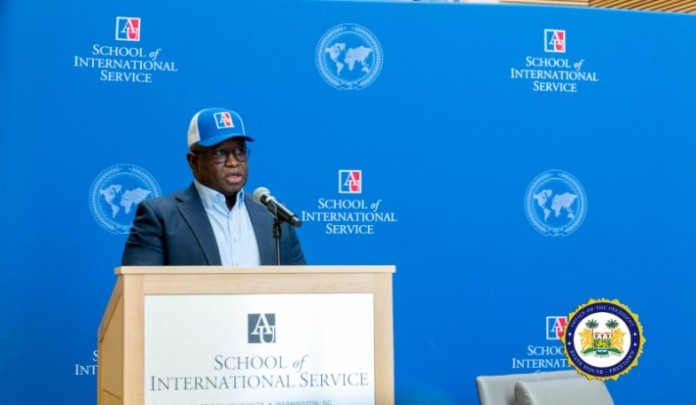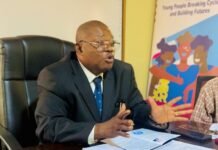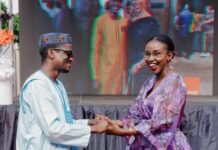By Amin Kef (Ranger)
President Julius Maada Bio has leveled accusations against the United States, alleging that it attempted to influence the outcome of his country’s June 24, 2023, election.
That claim was made on Friday September 15, 2023 during a lecture at the American University in Washington, where President Bio is an alumnus. The theme of his lecture was: “Building a Prosperous and Secured Future through Human Capital Development – The Sierra Leone Example.” He reflected on the significant role the University played in shaping his leadership style and expressed his gratitude for the opportunity to address the audience.
President Bio defended the integrity of the Election Commission of Sierra Leone (ECSL), asserting that it had performed its duties with due diligence.
He underscored the Commission’s independence, stating, “I have never interfered with their work before, and I have no intention of starting now.”
The President frankly criticized the United States Government saying it is attempting to undermine the integrity of his country’s recently concluded presidential election. He said such actions by the US Government has the propensity of inciting a coup further maintaining that the election was widely regarded as free, fair, and transparent.
President Bio stated that he really does not know the motives behind the US Government’s interference stressing that it is quite ironical that Sierra Leone is being accused of actions akin to what the Americans themselves had done in the past.
It could be recalled that in the aftermath of the election, a joint statement from the United States, European Union, France, Ireland, and Germany raised concerns about transparency related to the process of vote counting. These concerns echoed those of some national and international observers.
Worthy of note is that despite the challenging economic climate and rising inflation in Sierra Leone, which some speculated might tilt the scales in favor of the opposition, President Bio managed to secure 56.17 percent of the votes. That was just above the 55 percent threshold needed to avoid a runoff election.
Reacting to the U.S. State Department’s decision to impose visa restrictions on individuals suspected of undermining Sierra Leone’s democracy, President Bio said dialogue should be the preferred path to resolve any differences rather than resorting to sanctions or threats. President Bio recognized the historical ties and cooperation between the Sierra Leone and the USA. He expressed optimism that through open and constructive dialogue, both nations could strengthen their relationship and continue to work together toward common goals.
Interestingly, though, the identities of the individuals affected by these restrictions have not been disclosed due to U.S. laws regarding the confidentiality of visa proceedings.
In addition to his lecture, President Bio held a meeting with the International Monetary Fund (IMF) Managing Director, Kristalina Georgieva, at the Fund’s Headquarters in Washington, DC. He acknowledged the valuable partnership his Government has with the IMF and reaffirmed his commitment to implementing sound economic policies to maintain macroeconomic stability and foster sustainable, inclusive growth.
Earlier in the week, President Bio spoke at the 4th Observance of the International Day to Protect Education from Attack at the UN General Assembly in New York. He underscored the urgent need to safeguard education from attacks and detailed his Government’s efforts to reverse the decline of Sierra Leone’s education system, a legacy of the 11-year civil war in the nineties. The President also highlighted his Government’s focus on Human Capital Development and its policy initiatives aimed at addressing restrictive policies and actions that had previously made education vulnerable to attacks in Sierra Leone.
It must be underscored that while President Bio acknowledged the concerns raised by the alleged interference in the country’s elections, he, however, expressed optimism that through diplomatic channels and constructive engagement, the two nations can find common ground and strengthen their relationship for the benefit of both countries and their respective citizens.




